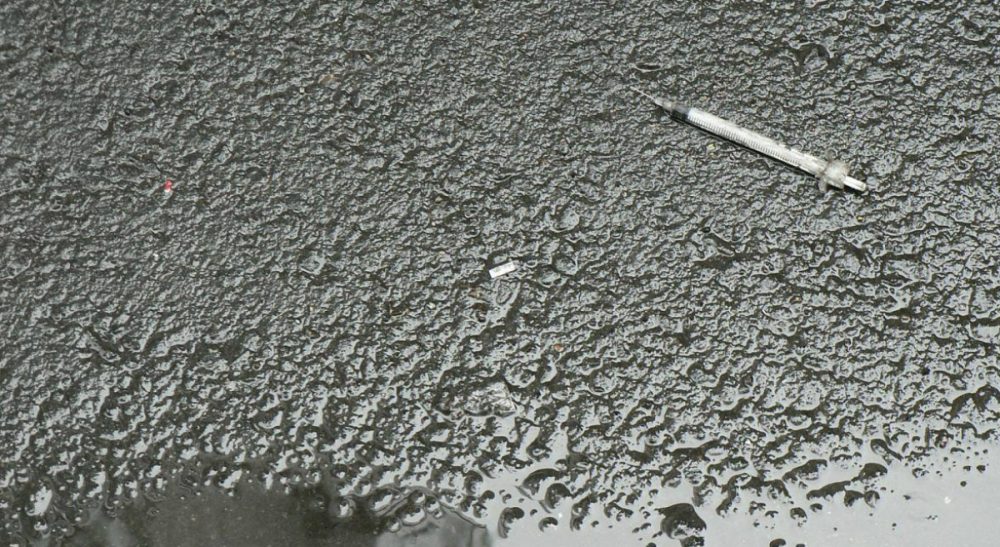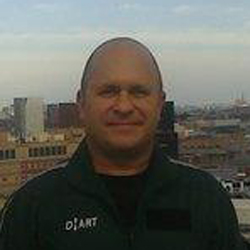Advertisement
The Power To Reverse An Overdose, The Powerlessness To Prevent The Next One

Once she started started breathing again, her panic set in.
She was supposed to be at school. She flailed for her cellphone. Her mother, she said, was surely waiting there to pick her up.
For a paramedic, the first few times you reverse a heroin overdose are an almost religious experience, in an old-time revival tent kind of way.
Five minutes earlier, this girl, a high school senior in an affluent Massachusetts town — blonde, pretty, almost exactly what you’d expect a child of privilege to look like — was nearly dead. She’d been found, not breathing, a hypodermic needle at her side, in an off-campus house known as a spot for teens seeking trouble.
My partner and I arrived on our ambulance and, finding her, pushed an intravenous dose of Narcan into her system, preventing the heroin coursing through her blood from finding purchase on her nervous system’s receptors.
For a paramedic, the first few times you reverse a heroin overdose are an almost religious experience, in an old-time revival tent kind of way. We lay hands on the Lazarus before us, perform a kind of ritual, and, within a minute, Lazarus awakes. We roll away in our ambulance, a good deed done. Healers, we think.
The less Christ-like you feel the more heroin overdoses you work.
Last Thanksgiving, we responded to a call for a body left in the middle of a four-way intersection on the rural outskirts of a nearby town. The man wasn’t breathing. His pupils were as tiny as a pencil’s sharpened point.
We woke him up with Narcan. On the long drive to the hospital, he told me he’d been clean for almost 20 years, was married, had kids, and had built a successful landscaping business. Then, for no particular reason, he couldn’t resist the urge and hooked up with some old friends, the same ones who, when he lost consciousness and stopped breathing, dropped him in the middle of nowhere and drove away.
Advertisement
Why would he risk so much for a drug he hadn’t used in two decades? “I just love heroin,” he said. “What can I say?”
After 14 years as a paramedic, I’ve become a connoisseur of the harms that illicit and prescription drugs, used recreationally, cause. It’s the opiate addicts who seem powerless against their affliction in ways other junkies are not. I’ve been told methamphetamine abusers are similarly bound by their drug of choice, but meth hasn’t made inroads in the places I’ve worked. Yet.
Heroin addicts most sadden me because I see in so many of them the lives they might have had, and because I understand less than ever why they would trade those possibilities for what inevitably comes after the needle is pulled from their arm, or from between their toes, or from wherever else they found a vein.
And that said, once in a while, hope enters the picture, as it did in the form of a letter from the girl we revived while her mother waited to pick her up from school. We’d talked on the way to the hospital. Usually, I keep a professional distance from my patients, an emotional defense I’ve come to rely on in a job where, so often, my fourth or fifth call of the day is the worst day of a stranger's life.
But with this girl, I was disarmed. She was so young, living in a town where the entire apparatus seemed geared toward ensuring that kids like her make good. As a parent, I rejected the possibility that someone would throw that away.
I was honest with her. I told her that there was no good end to this for her; that I see it all the time; that she would end up like one of the scores of homeless junkies who wander the streets of a nearby city, one of the state’s poorest.
I told her that mistakes could be fixed, but that time was running out to make the life she wanted. I told her that, if she let it, heroin would make the choice for her.
She cried and said she felt like her life was over, that her heroin addiction made it impossible for her ever to live a normal life. I told her that mistakes could be fixed, but that time was running out to make the life she wanted. I told her that, if she let it, heroin would make the choice for her.
I dropped her off at the hospital and went on with my shift, with my month, with my life, for almost two years.
Then, a week ago, her letter found me. In it, she thanked me for taking care of her that day and for talking to her, giving her some hope. She said she’d been in treatment and had been clean ever since. She was writing from her college dorm room, and she was doing well.
Of course, this isn’t the end of her story. There may be more dark nights than sunrises in her future. Such thinking is an occupational hazard: A paramedic's life is linear — one call leads to the next and the one after that, and a kind of history is built that seems destined to repeat itself.
Related:
